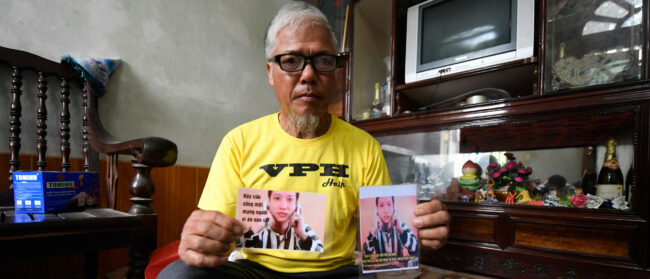For the first time in its history, multiethnic Singapore has chosen as its president a candidate who is not ethnically Chinese in a contested election.
Tharman Shanmugaratnam, a popular, long-time government minister of Tamil heritage, was chosen by a wide margin in September’s presidential election. When he was sworn into office on 14 September as Singapore’s ninth president, it was viewed as a momentous historical event – yet one that political observers find unlikely to impact the island nation in any meaningful way.
“Everyone’s pretending like this election actually matters a lot, but frankly, it doesn’t,” said Michael Barr, an associate professor in international relations at Australia’s Flinders University.
Tharman is not the first member of an ethnic minority to become president, but he is the first to do so by winning a competitive election. That he did so by a landslide has made a compelling case that a strong candidate from an ethnic minority community can overcome race-based voting patterns on the strength of meritocratic achievement.
Much of Singapore’s electoral system has been designed on the assumption that this is not possible. Instead, positions reserved for ethnic minority candidates have been used to ensure their participation in government. Indeed, concerns of the ruling People’s Action Party (PAP) around the electability of a non-Chinese candidate are one of the reasons Tharman may have run for president rather than being a potential future prime minister for Singapore, said Barr.
In winning the presidential election with 70.4% of the vote, Tharman had to secure at least a plurality of the votes from Singapore’s Chinese community. During the presidential campaign, Tharman stated that “Singapore is ready any time for a non-Chinese prime minister.” His electoral performance has helped back this assertion.
“Many of us would project and believe that Singapore has matured politically, believing in the meritocratic system and multiracialism, that someone who’s non-Chinese can still win in an election which is open,” said Bilveer Singh, an associate professor in the faculty of political science at the National University of Singapore (NUS). “Tharman has proven [that belief].”
Though the election results do have the potential to make a lasting impact on Singapore’s ethnic politics, restraints on the president’s power limit the actual impact of the office.
Since 1991, when Singapore changed to an elected presidency, the role has become largely irrelevant from the perspective of government policy or electoral politics. The role is actually one many Singaporeans felt Tharman was overqualified for, given his long and storied career. The graduate of the London School of Economics, Cambridge and Harvard universities worked his way up through the Monetary Authority of Singapore to become its managing director.
When he transitioned into electoral politics in 2001, he was immediately made a government minister and has since served as both a deputy prime minister and senior minister with portfolios including education and finance.
During his time in government he broke with the PAP’s deep-rooted opposition to welfare in order to secure increased state support for the poor and the elderly.
“I think he is seen as a champion of the people,” said Singh.
The role of the presidency was originally conceived as ceremonial, not unlike a governor-general in British commonwealth nations. Distinguished, often ethnic-minority Singaporeans would be appointed to the position to represent the country in diplomatic functions.
“The job started off in 1991 as what looked like a very important job, but it has become so restrained by the council of presidential advisors and all these new rules they’ve introduced.”
Michael Barr, associate professor at Australia’s Flinders University
When a constitutional amendment established presidential elections three decades ago, the position was endowed with substantial powers. The president could unilaterally veto any attempt to draw down the country’s reserves and withhold approval on the appointment of key figures within the civil service. As conceived by Prime Minister Lee Kuan Yew, it was viewed as a powerful check on the government in the event that an unexpected election result handed power to the PAP’s opposition, with an electoral mandate to legitimise the president’s authority.
Soon after the system of direct elections was implemented, though, “the government realised that this spectre of a so-called freak election result was less and less likely to occur”, said Kevin Tan, an adjunct professor in the law faculty of NUS and editor-in-chief of the Asian Journal of Comparative Law.
Since then, the office has been gradually stripped of the ability to exercise discretionary powers in a meaningful way so that it would not be able to restrict the authority of a PAP-led government, according to Barr, leaving the job once again largely ceremonial.
“The job started off in 1991 as what looked like a very important job, but it has become so restrained by the council of presidential advisors and all these new rules they’ve introduced. It’s just a showpiece now,” Barr said.
While the position of president is intended to be a non-partisan one, the fact that the post is the only position directly elected by the entire population of Singapore has encouraged many to view the outcome along political lines. Tharman was viewed by many as having an unspoken endorsement from the PAP, while candidate Tan Kin Lian, a businessman and past presidential candidate, receiving public endorsements from the leaders of opposition parties.
However, candidate eligibility criteria that leave only government ministers, senior officials appointed by the government, and the leaders of Singapore’s largest corporations able to run have made it all but impossible for a candidate that could credibly be called “opposition” to contest the election in the first place.
As a result, said Barr, this year’s election featured a slate of three candidates who – despite portraying themselves as independent – were all more or less part of the PAP establishment. Even Tan Kin Lian, who presented himself as “an anti-establishment opposition candidate,” was not truly independent of the PAP: “He’s just not as far in,” said Barr.
Without a genuine opposition candidate, those who challenge the government cannot really “lose” the election. On the other hand, because of Tharman’s charismatic popularity, a vote for him does not equate to a vote for the PAP.
“Tharman has always outperformed the PAP, even in every general election,” said Singh.
Even still, he added that Tharman is too unique an individual for parallels to be drawn with other ethnic minority figures currently on the Singaporean political stage, making it unlikely that anyone will be able to follow in his footsteps for the foreseeable future.
“Tharman is just too much of a charismatic leader that every Singaporean loves and knows him for what he is. So I don’t think the Tharman effect can be replicated elsewhere by another figure,” Singh said.


